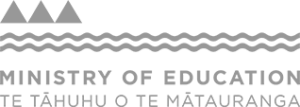CEO Update
Kia ora,
Netsafe’s scams work endures with people losing 3,814,881 and more money this quarter. The use of fake websites, phishing emails, or social engineering tactics continue to trick people into revealing their personal and financial information.
Another prevalent theme in the quarterly reports is cyberbullying. Our reports indicate that cyberbullying remains a growing concern for New Zealanders. This form of bullying can have serious consequences for victims, including anxiety and depression. With the return to School next quarter it’s important that cyberbullying programs assist young people to recognise and respond to cyberbullying with Netsafe’s help.
Something not being talked about enough in New Zealand is online gambling and the lack of regulation. More and more people are turning to the internet to place bets on sporting events, casino games, and other forms of gambling. Online gambling can lead to problematic behaviour and addiction.
The government has been studying their gambling laws for almost three years. They are looking at how to keep people safe from gambling addiction, especially online gambling. They need to make changes soon to help protect the people of New Zealand.
We were privileged to join Internal Affairs Minister Hon Jan Tinetti on an eight-day study trip to Europe this quarter. The aim of the tour was to inform work underway here in response to some of the global harm challenges of the future. It was a highly valuable visit that saw a small group of politicians, officials, NZ regulators and not-for-profit organisation representatives meet with counterparts in Dublin, Paris, London and Helsinki. We wrote a blog post summarising key takeaways from the tour.
Netsafe returned in November to talk about pornography and its impact in the non-consensual image sharing space, and helping people understand how they can get information about pornography in a non-judgmental way. We partnered with the Light Project and Spinoff to coordinate a number of activities around New Zealand’s first Porn Week and get people talking about pornography and its place in our society.
Our Bodyright campaign, which launched as part of Mental Health Awareness Week in September, picked up a silver award at the annual Best Awards. The campaign encouraged New Zealanders to think about their use of filters.
Finally, I want to let you know of some achievements and changes in our operations areas. Over 50 countries voted Netsafe’s Chief Online Safety Officer, Sean Lyons, to become Vice President of the INHOPE global helplines to combat child sexual explicit imagery distribution – a position he will hold for two years. Congratulations Sean! Sarah White has resigned from her position of Chief Digital Harms Officer after six years, but is returning to Netsafe as a contractor to progress a number of improvement projects in our education and operations area. Andrea Leask is stepping into the role of Chief Digital Harms Officer until the middle of year and Catherine Able-Pattinson joins Netsafe to backfill into the Chief Operating Officer role.
Ngā mihi,
Brent Carey
CEO, Netsafe
Report Contents
Previous quarterly reports
Quarterly Results
Between October – December 2022, Netsafe received 4,377 reports overall.
Top taxonomy descriptions included:
Phishing • Prize promotion/ sweepstakes scam • Harassment • Non-existant products scams • Sextortion (Extortion with sexual content) • Scams • Non-existant services scams • Consumer Investment Fraud • False allegation made • Sensitive information released – reputation • Intrusion
TOTAL REPORTS
PERSONAL HARM COMPLAINTS
SCAM & FRAUD REPORTS
Reports by age group
2%
00-12
11%
13-17
8%
18-21
36%
22-40
31%
41-64
12%
65+
Reports by region
Reports by gender
54%
FEMALE
1%
GENDER DIVERSE
45%
MALE
Personal Harm Reporting
Reported breaches under the Harmful Digital Communications Act*
Between October and December 2022, Netsafe received 845 personal harm reports. The top personal harm categories under the Harmful Digital Communication Act for the quarter were:
* Cases often involve breaches of more than one communication principle
Harmful Digital Communications Act Reports Spotlight
In the last quarter Netsafe received record high numbers of webcam blackmail scams.
HOW THIS SCAM WORKS
Scammers create fake accounts online and start chatting with unsuspecting people. After connecting on social media or through a dating site, the scammer will encourage people to take part in a video call. Usually, these video calls or chats involve exchanging intimate images or videos. After the call, the scammers explain that the call was recorded, and threaten to publish the footage/images or send this content to the person’s contacts if they don’t pay a ransom.
The scammer is often doing this professionally and will have a setup where they are using multiple social media accounts, specifically created for this purpose. The scammer will be trying to defraud multiple people at the same time and will quickly focus their efforts on the people that they believe are most likely to pay the ransom – people who make payments very quickly or keep responding to the scammer. The scammer will ‘discard’ others very quickly; these are the people who block the scammer and refuse to engage so it is important that all contact with them is blocked.
IF THE SCAMMER IS MAKING DEMANDS
- Do not pay this person. The scammer will continue to make demands for more money, and they are often more likely to end up posting the video
- Report any content and the user to the social media or dating site
- Stop all contact with this person and block them on all platforms
- If you have copies of the photos/videos that you are being threatened with, you can upload these to StopNCII here. StopNCII is a free tool from the UK Revenge Porn Helpline; users can securely upload intimate photos and the tool creates a hash file for these photos. The hash file is then shared with Meta (Facebook and Instagram), who then use it to prevent these photos/videos being uploaded in future
- Temporarily deactivate or ‘lock down’ (set all privacy settings to their highest level) your social media accounts
- Ask a trusted friend or family member to keep an eye on social media for you. This can help keep you informed if anything is shared, and allows you to take a break and look after your own wellbeing
- You may find it useful to prepare a statement to friends and family, explaining that you’ve been targeted by a scammer (you don’t need to share details) and asking contacts to ignore messages from unknown people
- You can also consider setting up Google Alert so that you’re notified if anything is published online using your name. Please be aware this will not capture every instance of your name being used online
Scam and Fraud Snapshot
Scam and fraud reports to Netsafe this quarter were largely driven by three types of incidents: products and services fraud, investment fraud, and relationship and trust fraud. These scams are advantaged by scammers leveraging the personal connection afforded by social media. Where scams by text message, phone call, or email rely on the content and conversation to build rapport, scams shared by social media can be more effective as scammers will build an identity or social media profile to support their scam. As there is a profile picture of a real person, a history of previous posts, and a record of their interests, their messages are more easily attributed to a real, genuine person. Where the scammer has included bogus employment history or used other fake accounts to emulate a supportive community, this fake identity helps to frame the scammers contact with the customer by reinforcing the illusion that they are joining a successful venture.
Many of these incidents have also involved scammers using compromised or ‘hacked’ accounts to promote these scams. As the accounts are already connected with friends and family, and have likely been used previously for genuine contact and conversation, messages shared from these accounts attract significantly less scrutiny. In some cases, scammers are even using previous conversations stored on the account to better emulate the genuine account holder. There has been a continuing theme of scammers nurturing personal relationships and increasing time investment which is reflected in the financial losses reported to Netsafe. In the last quarter, the average financial loss reported to Netsafe exceeded $8000.
Scam & fraud snapshot
$3,814,881M
REPORTED LOSSES
460
REPORTS WITH $ LOSSES
$8293
AVERAGE LOSS
Top scam categories reported
Reported incidents from chatbot (Kora)
Education, Partnerships & Impact
Our education team delivered 6 school sessions across 5 locations with 193 attendees this quarter and we met with, and offered support to, school governance teams at the NZSTA (New Zealand Schools Trustee Association) conference in Christchurch. 106 incidents were recorded of schools accessing immediate help with incidents from our helpline team. The education team collaborated with education partners to deliver our whānau sessions with the Mental Health Education & Resource Centre (MERC), NZ Police (Youth Aid) and Whanau Ora, Nga Kakano Foundation, Te Puke. We also delivered a session in the Good Space webinar attended by representatives from 92 schools, across leadership, pastoral care and learning support roles. And we were part of the New Era roadshows in Whangārei, Auckland and Christchurch.
Our partnership work included the creation of a fact sheet about safe online shopping for Fraud Awareness Week (November) in collaboration with the Doman Name Commission. In November Netsafe also led New Zealand’s first Porn Week. We partnered with subject matter experts the Light Project to reach teens across the nation. Our content links across The Spinoff website resulted in over 1,200 clicks through to our education microsite, which itself welcomed almost 4,000 visitors during launch week, collecting 75 submissions from members of the public.
We supported the rollout of other impactful products to New Zealand schools including the Digital License+ in partnership with the Alannah & Madeline Foundation, which resulted in 72 schools registering for 13,580 free licenses in October, as well as supporting the development and media launch of Cyber Skills Aotearoa, providing statistics of the impact of cybercrime on our young people.
There were almost 67,000 visitors to our online resources this quarter, 38,000 of them finding us via Google Search queries. Over 6,000 visits were to our “Sextortion” page as we worked with Police to highlight to the public the sharp rise in cases. We achieved 192 pieces of coverage in national and regional media across online, TV, radio and print news this quarter. Much of this focused on the impact and losses of scam crimes to New Zealanders, following the release of our FY21/22 annual report.
6 school sessions
193 staff, students and whānau reached
Submissions and Advocacy
Netsafe responds to public consultations or may otherwise advocate on issues relevant to our work. This quarter’s submissions can be found via the following links:
22 November 2022 – Response to Draft National Security Insights Briefing
14 November 2022 – Submission to Independent Electoral Review
17 October 2022 – Response to consultation on draft Scam Prevention Code
About Netsafe
Netsafe is an independent non-profit organisation with an unrelenting focus on online safety. We keep people safe online by providing free support, advice and education. Visit netsafe.org.nz for useful resources or call 0508 638 723 seven days a week for help with an online incident.
Find out more at www.netsafe.org.nz
Become a Netsafe member
Netsafe is incorporated as a society and a charity. Our members represent a variety of backgrounds and countries, but all have one thing in common – an interest in keeping people safe online. Membership is free and easy to apply for.
Find out more about being a Netsafe member, or apply to join today by completing our online form.
Report Data
The data in this report represents the data available at the end of the quarter. Information related to the reports made to Netsafe reflect high-level trends and does not include easily identifiable information about specific reports/incidents.
If you have any queries about the information in this report, please email [email protected]




